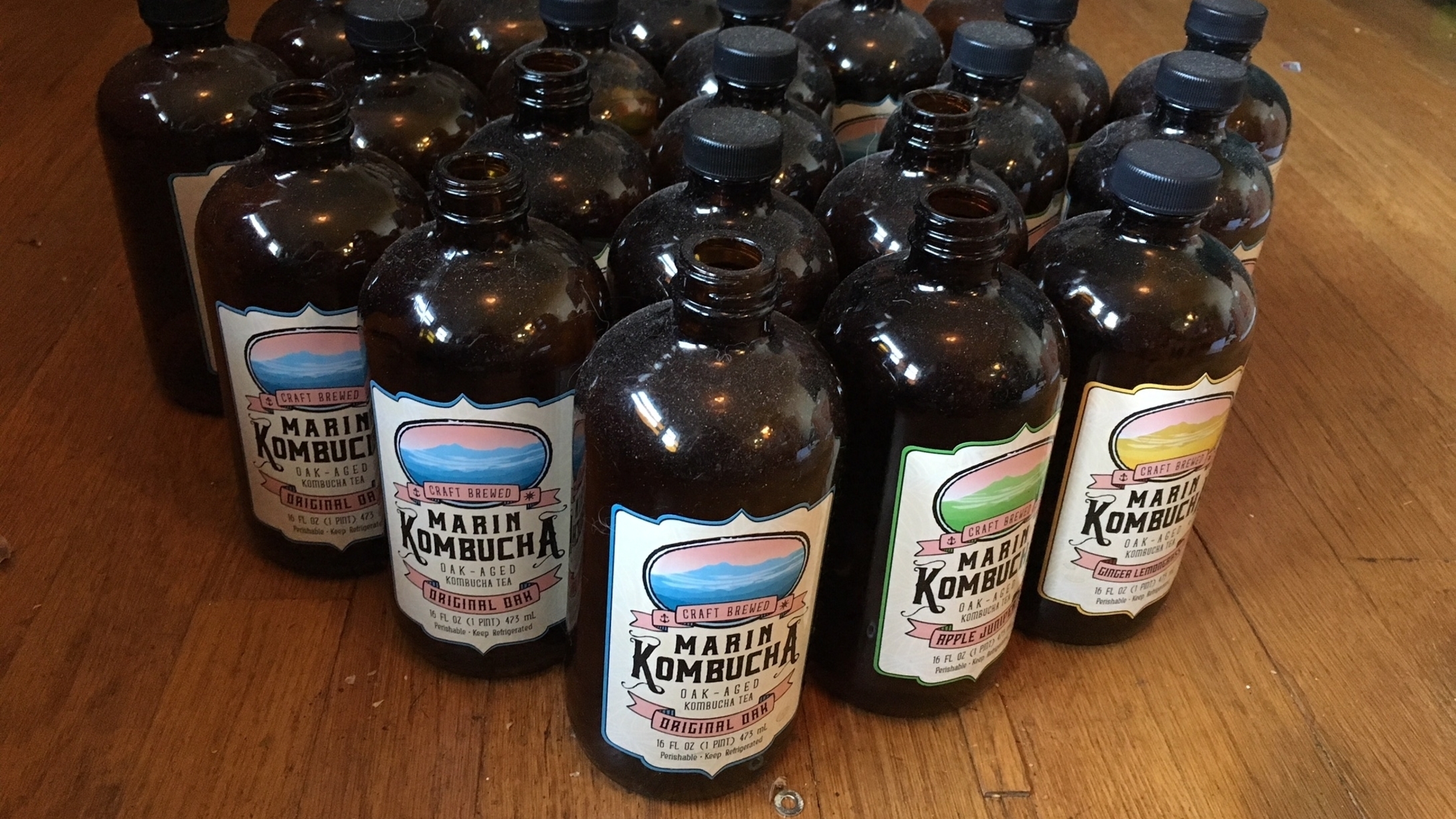I am now a Californian. I drink kombucha every day, one a day, a micro-dose of alcohol that a teetotaler like me completely responds to, and I drink only one very particular brand and flavor: Marin Kombucha’s “Original Oak.” I don’t mean to say that this is what makes a person Californian, or that anyone who does is; I would only say that the fact that I do means I am.
I can sometimes substitute two of the three other Marin Kombucha flavors: “Ginger Lemongrass” has a refreshing bite—though a little too sour—and though “Apple Juniper” is overly sweet, it has the kind of strikingly delicious rounded flavor that made it the first one I really responded to. “Sage Pinot” is trash, and we don’t discuss it.
It is “Original Oak” that stays the course, that steadies the tiller, the kombucha to drink if you’re going to drink one every day. I have some questions, of course: Is this what oak tastes like? Is this what the OG Oak tastes like, before the millennials got their ruinous hands on it? Is the thing that I like the flavor imparted by oak casks, rather than the kombucha itself? These are questions to which the only answer, apparently, is to drink a bottle of Marin Kombucha “Original Oak” every day.
The story of Kombucha in America is sufficiently vague that I’ve always thought of it as a Berkeley, California thing; in 2009, Slate named it The Most Liberal Product in America, observing that “To come across someone drinking Kombucha is to be near a food co-op, a yoga studio, or a farmer’s market.” But I’ve lived in the East Bay for a decade and a half, and when I first saw Berkeley—in 2001—I thought to myself: “This looks like Madison, Wisconsin, but dirtier.” I was looking at Telegraph Avenue, probably, and the memory of that momentary thought has stuck in my head much longer and deeper than whatever I was looking at to provoke it. There’s an idea of “Berkeley, California” in there that hooks onto whatever the idea of “kombucha” is.
I know that not only Californians drink kombucha, though; my aunt gave me and my father two six-packs of her homemade brew a few months ago, and she lives in Wisconsin, where my mother was born, where I was born. Presumably, too, they drink it in Asia,where “Manchuria is commonly cited as a likely place of origin,” and “It may have originated as recently as 200 years ago or as long as 2000 years ago,” thank you Wikipedia. And I know for a fact that they drink it in West Virginia, where I was with my father a few months ago and bought some kombucha at the little café/bicycle store near the apartment he now lives in, now that my mother passed on. I was told that they sell a kind of kombucha that someone “up by the museum” makes.
But I guess I’m a Californian now, because my mother no longer lives in the house I grew up in, and because my father has moved to an apartment in Huntington; I guess I’m a Californian because when my aunt came to visit to help my mother recover from surgery, and instead stayed to help her die, and to bury her, and to help us grieve, she helped me acquire a taste for kombucha, which I’ve kept on drinking. I guess I’m a Californian now because I drove my mom’s beat-to-shit Prius back to California, which is where I live and have for decades, and I guess nothing hammers home that you are the person you weren’t yet when you were a kid like losing a parent.
It’s funny to realize that you’re doing a thing for reasons you don’t realize; we are not as rational as we have to think we are, but knowing is not the same as coming face to face with it. And grief is so strange, perhaps, because absence is so confusing: there’s nothing to react to—in the most literal sense—and yet everything in your life is reacting to that nothing. I don’t cry as much about nothing anymore, but in the first days, I would find myself weeping in response to the most random of things, though if I thought about it, there was a pattern: bravery, kindness, selflessness, suffering. Things my mother’s absence made the world feel like it’d been deprived of.
Anyway, I started drinking kombucha, I guess, because it somehow told a story about where my homes are. I started drinking it because it reminded me of the event—my mother’s death—that I’m most afraid of losing touch with, of truly fading into nothing; it tells a story of being changed by her loss, so that in that way she’s still with me. It tells a story of the place where I live that I found on my own. It tells a story of the woman who most resembles her, who lives in Madison, Wisconsin. And because there really is nothing to do about grief—because there’s nothing to do about nothing—the thing people do, for good reasons, is drink.
Aaron Bady





